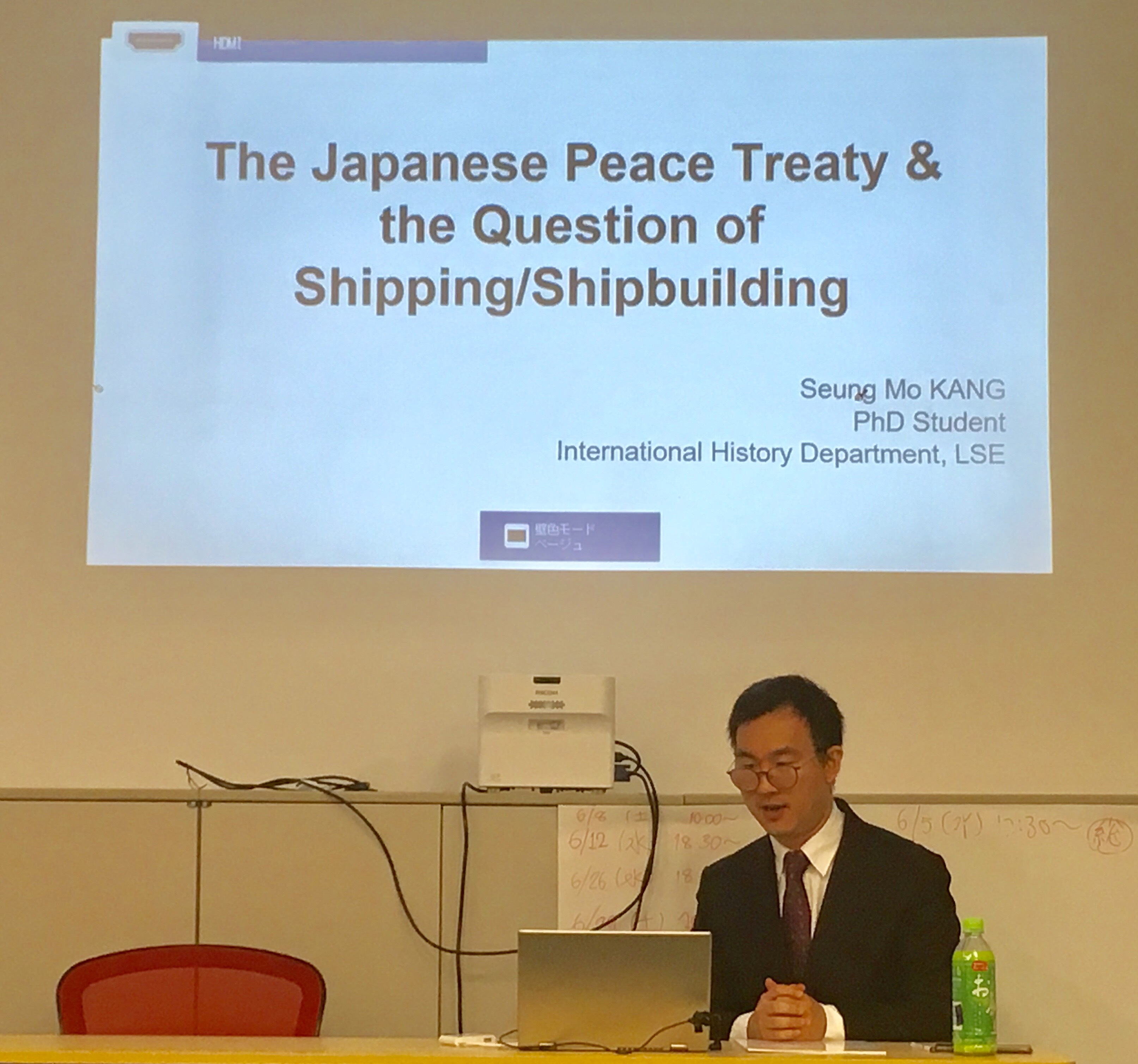On June 24th, 2019, Waseda University’s Global Asia Research Center hosted a workshop entitled “The Question of Postwar Shipbuilding Capacity During the Japanese Peace Treaty Negotiation”. Seung Mo Kang, a PhD student in International History at the London School of Economics (UK) delivered a research presentation based on a part of his PhD dissertation.
First, Seung Mo Kang explained how the US played a big role in preventing the adoption of restrictive shipping/shipbuilding clause to rebuild Japan’s economy and fight communism. He provided details about the history and the significance of shipping/shipbuilding for Japan’s economy at that time. During the Pacific war, all aspects of shipping were to serve the war’s purpose, which is why the Allies framed Japan’s shipping/shipbuilding as a military problem rather than an economic problem. Consequently, this disagreement played out during peace treaty negotiations.
Following the presentation, there was a lively discussion led by Prof. Toyomi Asano of Waseda University. There was discussion of the influence of local occupation authorities and the everyday lives of shipbuilding companies on the course of the treaty development. The event closed with a wider discussion about how to position this research within the general history of the Cold War.

